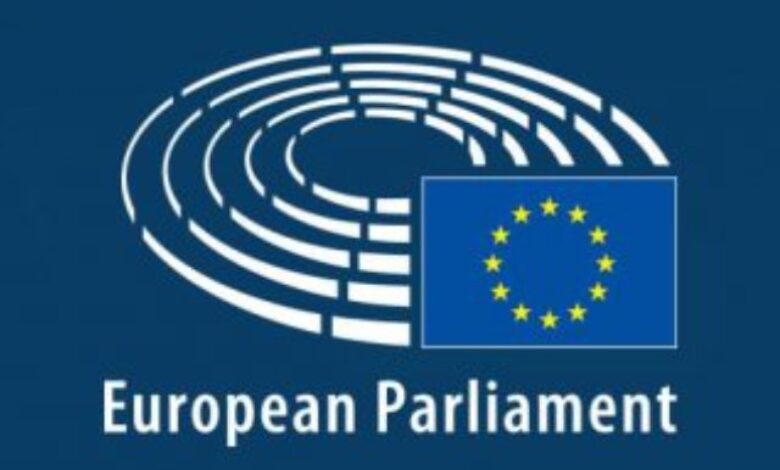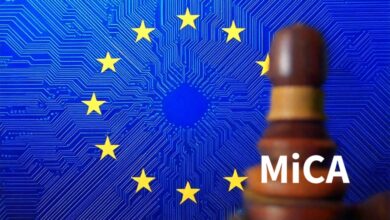European Parliament Takes Bold Stand Against Risky AI, Endorses Sweeping E.U. AI Act

In a significant move, European Union legislators have advanced measures to impose unprecedented restrictions on the use of artificial intelligence (AI) by companies, setting the stage for a clash with American tech giants who heavily invest in this technology.
The European Parliament has endorsed its position on the E.U. AI Act, a legislation that aims to prohibit the use of AI systems carrying an “unacceptable level of risk.”
This includes predictive policing tools and social scoring systems akin to those employed in China, which classify individuals based on their behavior and socioeconomic status.
Additionally, the act places constraints on “high-risk AI,” such as systems that could potentially manipulate voters during elections or pose threats to public health.
Under this legislation, stringent regulations will be imposed on generative AI, necessitating the labeling of content created by systems like ChatGPT, according to The Washington Post.
Furthermore, companies will be required to disclose summaries of copyrighted data used in training such technologies. This provision may pose challenges for systems that generate humanlike speech by scraping text from the internet, particularly if copyrighted sources are involved.
The potential impact of the legislation has raised significant concerns, prompting OpenAI, the creator of ChatGPT, to consider withdrawing from the European market depending on the final version of the text. While the approval by the European Parliament marks a crucial milestone in the legislative process, the bill still requires negotiations with the European Council, consisting mainly of heads of state or government from EU member countries.
Co-rapporteur Brando Benifei, an Italian member of the European Parliament working on the AI Act, described the approval as a historic moment, emphasizing that it paves the way for a global dialogue on developing responsible AI.
Unlike their counterparts in the United States, the European Union has dedicated years to develop comprehensive artificial intelligence legislation.
The European Commission initially proposed the legislation over two years ago and has since made amendments to address emerging concerns related to generative AI. This progress contrasts sharply with the situation in the U.S. Congress, where lawmakers are only now grappling with the risks associated with AI due to the increasing popularity of ChatGPT.
Senate Majority Leader Charles E. Schumer, leading bipartisan efforts in crafting an AI framework, stated that it would likely take months before any legislation is considered, with a focus on specific aspects starting in the fall.
The EU’s legislation builds upon existing frameworks, including data privacy laws, competition regulations in the tech sector, and addressing the harmful impacts of social media. These existing laws already influence the operations of companies in Europe, as demonstrated by Google’s postponement of its chatbot Bard launch due to privacy assessment requests from the Irish Data Protection Commission, responsible for enforcing Europe’s General Data Protection Regulation. Italy also temporarily banned ChatGPT citing concerns about potential violations of European data privacy rules.
This move solidifies Europe’s position as the de facto global regulator in the tech industry, shaping rules that impact tech policy worldwide and establishing standards that are likely to affect all consumers.
As companies adjust their practices internationally to avoid dealing with a fragmented regulatory landscape, Microsoft, for example, has committed to extending GDPR rights to all consumers, irrespective of their location in Europe or elsewhere.
In the United States, progress on comprehensive legislation to regulate social media and establish federal online privacy measures has been slow. Congress has yet to pass a bill addressing these issues.
Senate Majority Leader Charles E. Schumer recently organized a series of private AI briefings for lawmakers. The first briefing, led by MIT professor Antonio Torralba, focused on the current state of AI and its applications.
The subsequent sessions will explore the future of AI and its potential evolution over the next decade, as well as the military and intelligence community’s use of AI (a classified session). The strong attendance at the briefing, with participation from both Democrats and Republicans, underscores the keen interest in the topic on Capitol Hill. Lawmakers described the session as primarily educational, acknowledging that there is much to learn about the complex and rapidly changing field of AI.
Schumer recognizes the challenges in comprehending and keeping up with such a vital and intricate subject, stating that Congress has a lot to learn. The concern among some Democratic lawmakers is the risk of falling behind Europe in setting global rules for technology.
On one hand, Senator Michael F. Bennet emphasized that the United States should be at the forefront of standard-setting and global debates, expressing a desire to catch up with the European Union. On the other hand, Senator Mike Rounds, collaborating with Schumer on AI matters, prioritizes maintaining the United States’ global leadership in developing tools like generative AI.
While not overly concerned about setting new regulations, Rounds aims to incentivize AI creation, fostering its growth compared to other parts of the world, all while safeguarding individual rights.





